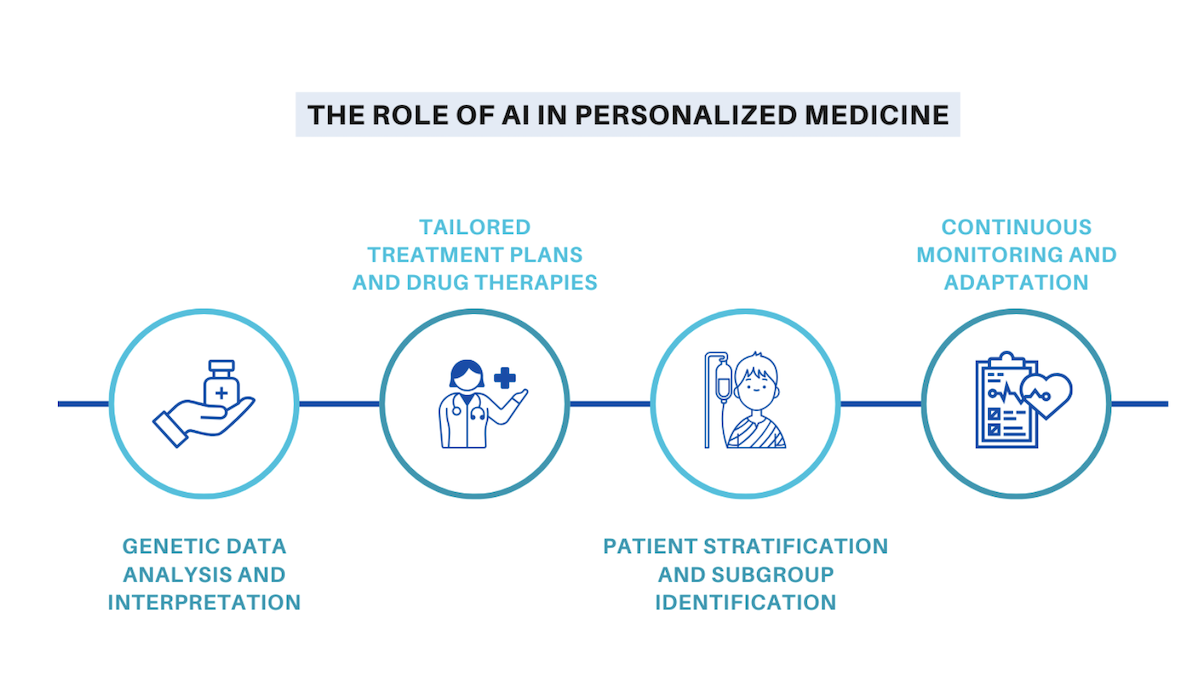Healthcare Innovations
The Future of Personalized Health Plans and Smart Insurance: A Comprehensive Guide

Exploring the cutting-edge advancements in healthcare, this guide delves into the exciting realm of personalized health plans and smart insurance. From innovative technologies to tailored coverage, join us on a journey to discover the future of healthcare.
Providing insights on how personalized health plans are revolutionizing the industry and how smart insurance is reshaping the way we approach healthcare coverage.
Evolution of Personalized Health Plans

Personalized health plans in the healthcare industry are tailored to meet the specific needs and preferences of individual patients. Unlike traditional one-size-fits-all approaches, personalized health plans take into account a person's unique health profile, including medical history, genetic predispositions, lifestyle habits, and personal goals.
Tailoring to Individual Needs
Personalized health plans are designed to address the specific health concerns and goals of each individual. By incorporating data from various sources such as wearable devices, genetic testing, and patient-reported outcomes, healthcare providers can create customized plans that focus on prevention, early detection, and management of chronic conditions.
Benefits of Personalized Health Plans
- Improved Health Outcomes: By tailoring interventions to individual needs, personalized health plans can lead to better health outcomes, including reduced hospitalizations, improved medication adherence, and overall quality of life.
- Cost-Effective Care: Personalized health plans can help prevent unnecessary tests, procedures, and medications, leading to cost savings for both patients and the healthcare system.
- Enhanced Patient Engagement: By involving patients in the decision-making process and empowering them to take an active role in their health, personalized health plans can improve patient satisfaction and adherence to treatment plans.
- Precision Medicine: Personalized health plans align with the concept of precision medicine, which aims to deliver the right treatment to the right patient at the right time, based on individual characteristics and needs.
Role of Technology in Personalized Health Plans
Technology plays a crucial role in the development and implementation of personalized health plans. From wearable devices to artificial intelligence, these technological advancements are transforming the way healthcare is delivered and managed. Let's explore how these technologies contribute to personalized health plans.
Wearable Devices and Health Apps
Wearable devices such as fitness trackers and smartwatches have become increasingly popular in recent years. These devices collect data on various health metrics such as heart rate, exercise levels, and sleep patterns. This data can be integrated into personalized health plans to provide more accurate and real-time insights into an individual's health status.
Health apps, on the other hand, allow users to track their diet, exercise, medication adherence, and even communicate with healthcare providers, making it easier to monitor and manage their health.
Artificial Intelligence and Machine Learning
Artificial intelligence (AI) and machine learning algorithms have the ability to analyze large amounts of data quickly and efficiently. In the context of personalized health plans, AI can help identify patterns and trends in an individual's health data, predict potential health risks, and recommend personalized treatment plans.
Machine learning algorithms can also continuously learn and adapt based on new data, making personalized health plans more dynamic and effective.
Telemedicine and Remote Monitoring
Telemedicine and remote monitoring technologies enable healthcare providers to deliver care to patients virtually, regardless of their location. This is especially beneficial for individuals with chronic conditions who require regular monitoring and follow-up care. Through telemedicine, patients can consult with their healthcare providers, receive prescriptions, and even participate in remote monitoring programs that track their health data in real-time.
These technologies not only improve access to care but also facilitate better communication between patients and healthcare providers, leading to more personalized and effective health plans.
Smart Insurance in Healthcare

Smart insurance in healthcare refers to the use of technology and data analytics to provide personalized coverage and services to individuals. This innovative approach plays a significant role in revolutionizing the insurance sector by offering tailored solutions that meet the specific needs of each policyholder.
Utilization of Data Analytics in Smart Insurance
Data analytics plays a crucial role in smart insurance by analyzing vast amounts of data to gain insights into individual health patterns, risks, and behaviors. By leveraging this data, insurance providers can offer personalized coverage plans that are more relevant and effective for each individual.
This helps in optimizing healthcare costs, improving outcomes, and enhancing the overall customer experience.
Role of Blockchain Technology in Smart Insurance
Blockchain technology is another key component in enhancing smart insurance processes. By utilizing blockchain, insurance companies can ensure the security, transparency, and integrity of data shared between different stakeholders in the healthcare ecosystem. This technology enables secure transactions, streamlined processes, and improved data management, ultimately leading to more efficient and trustworthy smart insurance solutions.
Integration of Personalized Health Plans and Smart Insurance

Personalized health plans and smart insurance can work together to provide more tailored and efficient healthcare solutions for individuals. By integrating these two concepts, individuals can receive personalized treatment plans based on their health data, while also ensuring that their insurance coverage aligns with their specific needs.
Synergies between Personalized Health Plans and Smart Insurance
- Personalized health data can be used by insurance companies to assess an individual's health risk more accurately, leading to more customized insurance policies.
- Smart insurance can incentivize individuals to adopt healthier behaviors by offering rewards or discounts based on their health data from personalized health plans.
- Integration of both concepts can streamline the healthcare process, leading to more efficient and cost-effective care for individuals.
Challenges and Ethical Considerations
- Privacy concerns may arise when sharing personal health data between health plans and insurance companies, raising questions about data security and consent.
- There could be potential discrimination based on health data, where individuals with pre-existing conditions may face higher insurance premiums or limited coverage.
- Ethical dilemmas may arise when using personalized health data to deny coverage or influence insurance decisions, raising questions about fairness and transparency in the process.
Last Point
In conclusion, the integration of personalized health plans and smart insurance presents a promising future for healthcare. With data-driven solutions and tailored coverage, the possibilities are endless for improving health outcomes and enhancing patient experiences.
Answers to Common Questions
How are personalized health plans tailored to individual needs?
Personalized health plans analyze individual data and preferences to create customized healthcare strategies.
What role does artificial intelligence play in creating personalized health plans?
AI algorithms analyze vast amounts of data to provide insights and recommendations for personalized health plans.
How does smart insurance use data analytics to offer personalized coverage?
Smart insurance leverages data analytics to assess risk factors and tailor coverage options to individual policyholders.







